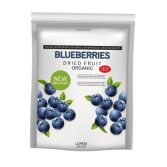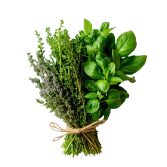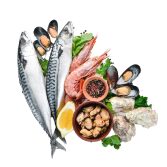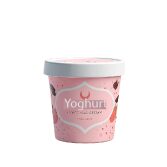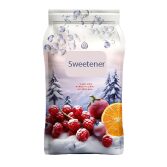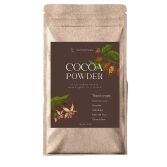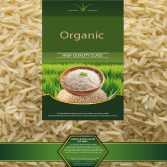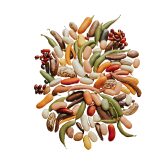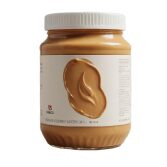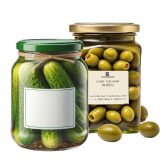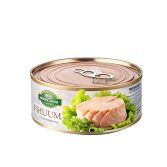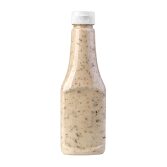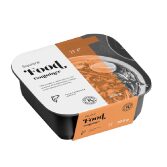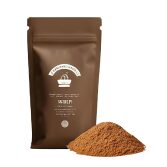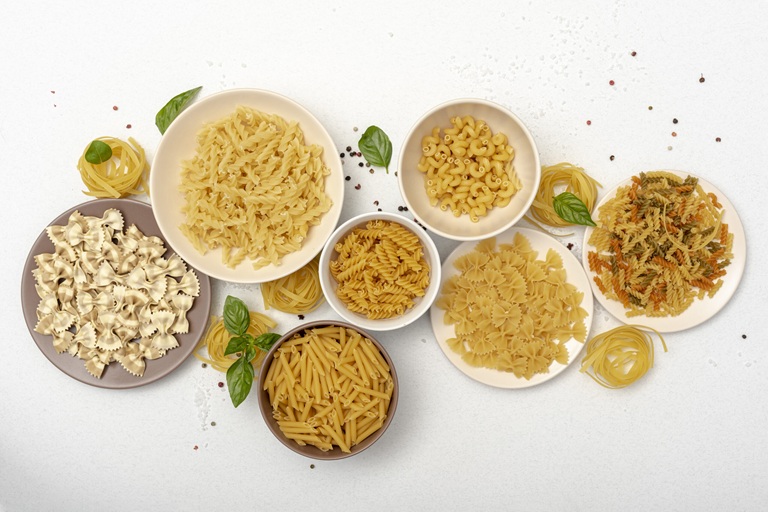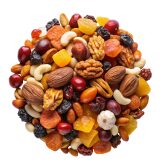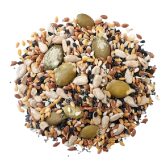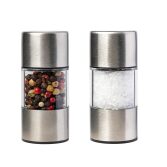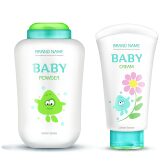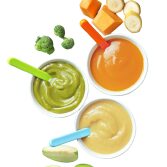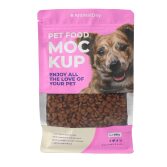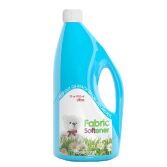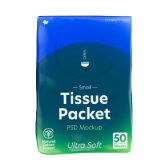
The Science Behind Truly Clean
-
Mohammed Banat
- Published on
- Category : Whole Foods
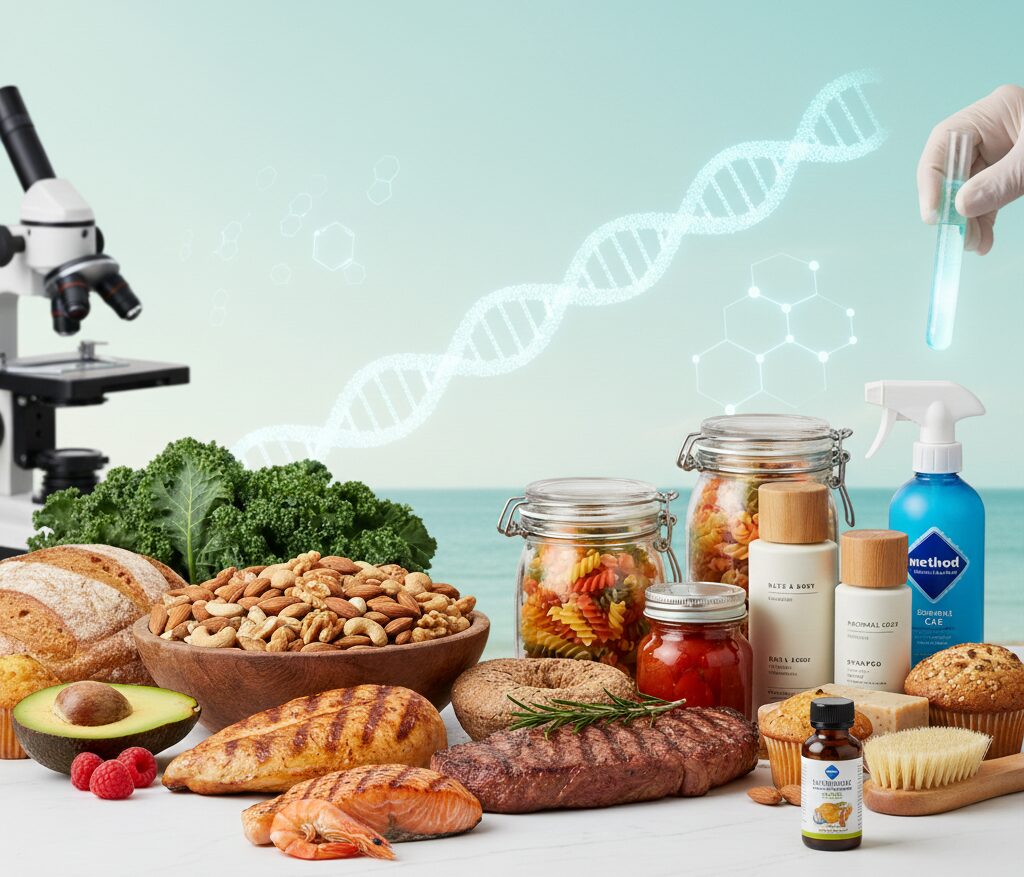
At Rawteen, our Truly Clean Promise is more than a philosophy—it’s a science-backed standard designed to support healing, vitality, and sustainable wellness. In a world full of confusing labels and conflicting advice, we know how important it is to feel confident in the choices you make for your health. his page dives into the science behind each pillar of our Truly Clean standard, empowering you to make informed choices and feel confident in the quality of every product we offer. Let’s start with the foundation: what we mean by always clean—and why that matters more than ever.
Organic When Necessary, Always Clean
The Concern:
Exposure to synthetic pesticides, herbicides, and fungicides used in conventional farming has been associated with various health concerns, including hormone disruption, neurotoxicity, digestive issues, immune dysfunction, and increased cancer risk. Even low-level pesticide residues may accumulate over time and interact with other environmental toxins.
We understand how overwhelming it can feel trying to avoid invisible threats in your food. This is where science—and sourcing—make all the difference.
Understanding the Science:
If you’re already dealing with hormone imbalances, digestive distress, or low immunity, pesticide exposure could be silently making things worse.
Hormone Disruption from Pesticides
Certain pesticides are classified as endocrine-disrupting chemicals (EDCs), meaning they can interfere with hormone systems. This interference may lead to reproductive abnormalities, metabolic disorders, and increased cancer risk. For instance, exposure to EDCs has been linked to thyroid dysfunction and other endocrine-related diseases [1][2].
Neurotoxicity
Some pesticides affect the nervous system, leading to neurotoxic effects. Organophosphates and carbamates, for example, are known to impact neurological function, potentially resulting in symptoms ranging from headaches and dizziness to more severe neurological disorders [3].
Digestive Issues
Acute pesticide poisoning can manifest with gastrointestinal symptoms such as nausea, vomiting, diarrhea, and abdominal cramps. These symptoms may resemble acute gastroenteritis and can occur shortly after exposure to certain pesticides [4]. It’s not just about one bite or one meal—these exposures add up over time, especially in places where imported produce is the norm.
Pesticides can disrupt the gut microbiome by killing beneficial bacteria, leading to digestive and other health issues. Emerging research shows that chemicals like glyphosate can disrupt your microbiome, which is crucial for digestion, immune health, and overall well-being. These disruptions may intensify digestive distress, drive metabolic imbalance, and fuel inflammation—especially for those already navigating gut challenges [5].
Immune Dysfunction
Pesticides have been implicated in immune system disorders. Exposure to certain pesticides may lead to immunotoxic effects, potentially increasing susceptibility to infections and affecting overall immune function [6] [7].
Cancer Risk
Long-term exposure to certain pesticides has been associated with an increased risk of various cancers. For example, glyphosate, a widely used herbicide, has been linked to cancer risk. Studies have found that glyphosate exposure is associated with biomarkers indicative of oxidative stress, a key characteristic of carcinogens. Notably, legal cases have ruled in favor of patients who developed cancer as a result of glyphosate exposure, underscoring the seriousness of these findings [8].
Pesticide Residues in the UAE
Research analyzing fresh fruits imported into the UAE found detectable levels of pesticide residues, highlighting the importance of monitoring and managing pesticide use to ensure food safety [9] [10]. Even when produce looks fresh and vibrant, what’s on—or in—it may not be visible.
Our Protection Approach
To minimize your exposure to harmful pesticide residues, we consider the following:
- Organic Certification: Opting for organically certified products can reduce exposure to synthetic pesticides, as organic farming standards prohibit their use.
- Selective Sourcing: Some crops are naturally less susceptible to pests and may require fewer pesticides. For example, avocados and macadamia nuts typically have lower pesticide residues. Carefully sourcing such non-organic items from trusted producers can offer safe alternatives.
- The Washing and Peeling Approach Doesn’t Apply: Thoroughly washing fruits and vegetables is often touted as helping remove surface residues. However, it may not eliminate all pesticide traces, especially those that have penetrated the skin or become part of the protein matrix, as glyphosate does. Peeling may reduce some exposure but can remove valuable nutrients. This matters even more with staples like legumes, grains, and baked goods, where pesticides can’t simply be washed away—they’re embedded in the food itself.
We take these complexities seriously—especially when even healthy-looking produce can be misleading. That’s why Rawteen is deeply committed to sourcing products that meet our Truly Clean Promise. Through careful evaluation of scientific research, country-of-origin practices, farm-level transparency, and lab testing, we deliver food you can trust—free from toxic residues and full of real nourishment.
We know you want to feed yourself and your family without second-guessing what’s hidden in your food. That’s why every step of our sourcing process is built around protection, not perfection.
How Rawteen Delivers a Truly Clean Solution
Organic certification is one of the tools we use to eliminate synthetic pesticide exposure, but it’s not the only one. Some crops—like avocados and macadamia nuts—are naturally low-spray and can be safe without certification. Our sourcing team evaluates every item based on safety, sustainability, and real-world farming practices, ensuring that even non-organic options meet the Truly Clean standard. Our process includes:
- Reviewing scientific literature and country-of-origin pesticide data
- Assessing producer practices and agricultural methods
- Using third-party lab testing when needed to verify purity
This is how we ensure that everything we carry—certified organic or not—is Truly Clean and safe for you and your family. With Rawteen, you don’t have to compromise. You get clean, thoughtfully sourced food that supports healing and removes one more burden from your plate.
Safely Contained
Even with clean ingredients, what touches your food matters just as much. The containers and packaging that hold your food can silently introduce toxins—unless every detail is intentionally chosen.
The Concern:
Plastics, can linings, and certain storage materials can leach hormone-mimicking toxins like BPA (bisphenol A), phthalates, and other additives into food—especially when exposed to heat, fat, or acidity. These compounds are not just environmental pollutants; they can interfere with delicate hormonal systems in the body, raising concern about their long-term impact on health. And because we eat from these containers every day, the risk adds up quietly, without warning.
Understanding the Science:
Hormone Disruption:
BPA and phthalates are widely recognized as hormone-disrupting chemicals, meaning they can mimic, block, or otherwise interfere with natural hormones like estrogen, testosterone, and thyroid hormones. Chronic exposure has been linked to reproductive abnormalities, metabolic disruption, and developmental issues in children. According to the Endocrine Society, even low-dose exposures to EDCs may have significant biological effects, especially during critical windows of development [11].
This matters even more for children, teens, and anyone with hormone-sensitive conditions.
Cancer Risk:
Several food packaging chemicals, particularly BPA, have raised red flags due to their potential link with hormone-sensitive cancers, such as breast and prostate cancer. BPA exposure can promote cell proliferation and interfere with apoptosis, two mechanisms associated with cancer progression. Long-term exposure—even at levels deemed “safe” by some regulators—has raised concern in the scientific community due to cumulative effects [12] 13].
Fertility & Child Development:
Plasticizers like phthalates have been linked to hormone imbalances, disrupted menstrual cycles, and decreased sperm quality—highlighting their broad impact on fertility. In developing children, these chemicals may impair neurological development and disrupt the hormonal cues that guide puberty. A growing body of evidence suggests that even prenatal exposure can set the stage for lifelong health effects [14][15].
When your family’s future is at stake, the packaging should never be an afterthought.
Metabolic Health & Obesity:
Emerging research links EDC exposure with an increased risk of metabolic disorders, including insulin resistance, obesity, and type 2 diabetes. These substances can act as “obesogens,” disrupting lipid metabolism and altering fat cell development. This helps explain why even low-dose, chronic exposures are problematic, particularly when combined with other environmental stressors [16].
How Rawteen Delivers a Truly Clean Solution
Because plastic-related chemicals can interfere with your health—even at low doses—we proactively protect our products with inert, food-safe packaging. We choose materials like glass, food-grade metals, and the safest plastics, minimizing heat and chemical exposure while maintaining food quality. Our priority is maintaining product integrity and protecting your health—without compromise.
This is how we ensure that every product is stored and transported in a way that minimizes exposure to harmful chemicals, protecting both the food’s integrity and your well-being. At Rawteen, we are committed to delivering food that not only meets the highest quality standards but is also stored with the utmost care—free from harmful endocrine disruptors and ready to support your health journey.
We know you shouldn’t have to think about your food storage when you’re just trying to eat well. That’s why we think about it for you.
At Rawteen, every container is a conscious choice—so you can feel safe, supported, and focused on what truly matters: nourishing your body without compromise.
Wholesome—No Toxic Preservatives or Additives
The Concern
Many processed foods contain artificial preservatives, colorants, and flavor enhancers to prolong shelf life and improve appearance and taste. However, the widespread use of these additives has raised concerns about their potential impact on health. Certain chemicals used in food processing have been linked to issues like hyperactivity, cognitive disturbances, and gut imbalances, with some even being considered potential carcinogens. These concerns are especially relevant as many people unknowingly consume these substances regularly, often without considering their long-term effects on health.
Understanding the Science:
Preservatives and Cancer Risk:
Butylated hydroxyanisole (BHA) and butylated hydroxytoluene (BHT) are commonly used preservatives in fats and oils, but they have been linked to oxidative stress and inflammation. Research suggests these preservatives could increase the risk of chronic diseases like cancer, liver damage, and cardiovascular conditions [22]. The International Agency for Research on Cancer (IARC) has classified these chemicals as potential carcinogens [17], raising significant concerns regarding their long-term consumption.
Hyperactivity and Behavior Issues:
Sodium benzoate, a preservative used in many processed foods, has been associated with neurobehavioral issues, particularly in children. A study published in The Lancet found that artificial food colors and preservatives exacerbated symptoms of ADHD, leading to increased hyperactivity and behavioral disturbances [18]. This is especially concerning for those with a compromised gut barrier, like individuals with leaky gut. In these cases, chemicals like sodium benzoate may be absorbed more readily—intensifying their behavioral effects [19][ 20].
Gut Health and Microbiome Disruption:
Food additives, including preservatives and artificial colorants, can also disrupt microbiome health. A 2023 review published in Molecules highlighted how these substances can alter the composition and abundance of gut microbiota, potentially contributing to inflammation and gastrointestinal dysfunction [23]. Such imbalances in gut bacteria may contribute to chronic conditions like irritable bowel syndrome (IBS) and other inflammatory bowel diseases, which are increasingly common in individuals exposed to a diet high in processed foods and additives [21].
MSG and Neurological Impact:
Monosodium glutamate (MSG), a common flavor enhancer, has been known to cause headaches, mood disturbances, and cognitive issues in sensitive individuals. New research suggests that people with leaky gut, which often leads to a compromised blood-brain barrier, may be at an even greater risk for MSG sensitivity. In these individuals, glutamate can more easily enter the brain, where it can potentially trigger neurological issues [19] [20]. People with leaky gut may also have a compromised blood-brain barrier, making them especially sensitive to MSG’s neurological effects.
How Rawteen Delivers a Truly Clean Solution
At Rawteen, we are committed to avoiding synthetic preservatives and additives whenever possible. Instead, we prioritize natural preservation methods, such as dehydration, freezing, and fermentation, which retain the food’s nutritional integrity while eliminating harmful chemicals. Dehydration, for example, removes moisture, which prevents microbial growth without the need for chemical preservatives. Similarly, freezing preserves nutrients and freshness while avoiding the need for artificial additives. Fermentation not only preserves food but also enhances its nutritional profile by promoting the growth of beneficial bacteria, which support intestinal health.
We know that you want to nourish your body with clean, wholesome food, and we believe that starts with avoiding unnecessary additives. That’s why we carefully select the products we carry, ensuring they meet the highest standards of purity and nutritional integrity.
When preservatives are necessary, we ensure they are minimal, naturally derived, and safe for consumption. We only use additives that are well-researched and recognized as safe by authoritative bodies like the European Food Safety Authority [24]. For example, some natural preservatives like vitamin E and ascorbic acid (vitamin C) have been shown to effectively preserve food without any adverse health effects. These ingredients are not only safe but also provide additional health benefits due to their antioxidant properties [25].
You deserve to feel confident about the food you eat—knowing it’s nourishing, pure, and free from toxic chemicals. At Rawteen, every ingredient is chosen with care, so you can enjoy the peace of mind that comes with truly clean food.
Unprocessed or Ancestrally Prepared
In a world where convenience often trumps quality, we choose the wisdom of tradition, prioritizing the timeless methods that keep our food nourishing and authentic.
The Concern:
Modern food processing prioritizes shelf life and convenience over nutrition. In the process, fragile nutrients can be destroyed by high heat or chemical treatments, and important components—like fiber, minerals, and plant compounds—are often stripped away. At the same time, refined sugars, oils, and additives are added, creating calorie-dense, nutrient-poor foods that are harder to digest and may contribute to inflammation and metabolic disorders.
Understanding the Science:
Nutrient Loss and Digestive Strain
Refining and industrial processing remove key parts of whole foods, including the bran and germ in grains, which are rich in minerals, fiber, and healthy fats. High-temperature extrusion, used to make cereals and snacks, destroys sensitive nutrients like B vitamins, enzymes, and antioxidants. Over time, a diet high in these processed foods can contribute to nutrient deficiencies and sluggish digestion, especially when consumed at the expense of whole foods [26] [27].
Antinutrients and Bioavailability
Many whole foods, especially grains, legumes, nuts, and seeds, contain natural compounds called antinutrients—such as phytic acid, lectins, and oxalates—that can interfere with the absorption of minerals like iron, zinc, and calcium. They can also cause joint pain and gastrointestinal symptoms for some people. Modern processing often skips the preparation steps that reduce these compounds. In contrast, ancestral methods like soaking, sprouting, and fermenting significantly reduce antinutrients while increasing the bioavailability of key nutrients [28] [29].
Support for Intestinal Health
Traditional food preparation methods not only make nutrients more absorbable but also reduce the burden on the digestive system. For example, fermentation pre-digests foods, reducing problematic proteins like gluten and producing beneficial bacteria and enzymes that support digestive health. These methods were not just cultural traditions—they evolved out of necessity, helping people make their food more nourishing, digestible, and shelf-stable without harmful additives [30].
How Rawteen Delivers a Truly Clean Solution
At Rawteen, we go beyond stocking shelves—we curate with purpose. Our selection prioritizes foods that are either completely unprocessed or prepared using traditional, ancestral methods known to preserve nutrients and support health. We actively seek out foods that honor the past—soaked, sprouted, fermented, stone-ground, or slow-roasted. These methods don’t just enhance digestion; they enrich your body with what it truly needs to thrive.
We say no to highly processed foods that are stripped of nutrients and full of chemicals. Instead, we believe in real food that’s pure, honest, and designed to fuel your body the right way. We partner with suppliers who respect the integrity of real food and follow time-tested preparation methods that align with our standards for metabolic and digestive wellness.
Whether it’s truly clean grains that have been stone-ground rather than refined, nuts that have been soaked to reduce lectins, or fermented snacks rich in probiotics, every item we carry is carefully chosen to nourish—not just fill—a growing, health-conscious generation. When you shop at Rawteen, you can feel confident knowing that every choice you make is backed by ancestral wisdom and the latest science. We’re here to support your journey to true health—no shortcuts, no compromises.
This means that when you eat, your body can recognize and use the food just as nature intended—nourishing you at every level, helping you feel your best, inside and out.
Unsweetened or Naturally Sweetened
The Concern:
Refined sugars and synthetic sweeteners, such as aspartame and sucralose, are pervasive in modern diets and can have detrimental effects on metabolic health. These sweeteners disrupt insulin sensitivity, contributing to an increased risk of obesity, type 2 diabetes, and cardiovascular disease. Additionally, they promote imbalanced gut microbiota by feeding pathogenic bacteria, which can exacerbate digestive issues and contribute to chronic inflammation. Synthetic sweeteners, although low in calories, often do not satisfy cravings, leading to overeating and further metabolic disruption. The glycemic response triggered by refined sugars also spikes blood glucose levels, increasing the risk of insulin resistance.
Understanding the Science:
Research on Sugar and Sweeteners:
Excessive consumption of refined sugar has long been linked to metabolic dysfunction. Studies from the Harvard School of Public Health indicate that the overconsumption of sugary foods and beverages is one of the primary drivers of the obesity epidemic and has a direct role in the development of insulin resistance, which underpins many chronic conditions such as type 2 diabetes and cardiovascular disease [31].
Similarly, research highlights the importance of glycemic control in metabolic health. Diets high in refined sugars cause rapid blood sugar spikes, leading to insulin resistance, increased inflammation, and a greater risk of developing metabolic conditions like obesity and type 2 diabetes [32]. The effects of sugar are not confined to the bloodstream alone but extend to the gut, where the overgrowth of harmful bacteria and yeast strains further exacerbates metabolic issues [33].
Synthetic sweeteners like aspartame and sucralose have their own set of health concerns. Research has shown that artificial sweeteners not only fail to satisfy cravings but may also alter the gut microbiota, potentially fostering an environment conducive to pathogenic bacteria. A study published in Nature found that artificial sweeteners like sucralose can contribute to dysbiosis, which can, in turn, lead to metabolic disturbances, weight gain, and digestive issues [34].
How Rawteen Delivers a Truly Clean Solution
At Rawteen, we believe in offering only the highest quality, naturally sweetened products that nourish your body and support your metabolic health—without compromise. We get it—sometimes you just want something sweet. But we believe that sweetness shouldn’t come at the cost of your health, so we prioritize whole food sources that nourish your body while satisfying your cravings. Whenever possible, we avoid added sugars—refined or synthetic—except when tradition or balance in a recipe calls for it.
When a sweetener is required, we choose whole, natural alternatives that are gentler on the body and often provide additional nutritional benefits. Dates, for example, are rich in fiber, antioxidants, and essential minerals like potassium and magnesium, which can help moderate the glycemic response and support heart health. Honey and coconut sugar contain trace amounts of vitamins and minerals and have a lower glycemic index than refined sugar, making them better choices for supporting metabolic health.
For those following very low-carb or ketogenic diets, we carefully select sugar alcohols that are metabolically efficient, such as erythritol and xylitol. These sugar alcohols are low in calories, minimally affect blood sugar levels, and are less likely to cause digestive discomfort compared to other alternatives.
At Rawteen, we aim to provide foods that support your metabolic health while satisfying your cravings in a way that is aligned with nature. Our commitment to naturally sweetened products ensures that you can enjoy flavor-balanced foods while nourishing your health.
Why This Matters
Many of our customers are navigating serious health challenges—or are working to prevent them. Others simply want to eat with clarity and care. The Truly Clean standard provides a framework built on transparency, science, and deep respect for the body’s ability to heal.
At Rawteen, Truly Clean isn’t a trend—it’s our way of honoring your body’s needs and respecting the natural intelligence of food. Every ingredient we source, every product we carry, and every standard we uphold is part of our promise to nourish your health, not just fill your pantry. You deserve better. And we’re here to deliver it—one wholesome bite at a time.
References
- Diamanti-Kandarakis, E., et al. (2020). Environmental Endocrine-Disrupting Chemical Exposure: Role in Non-Communicable Diseases.Frontiers in Public Health, 8. https://doi.org/10.3389/fpubh.2020.553850
- Beyond Pesticides. Pesticide-Induced Endocrine Disruption. https://www.beyondpesticides.org/resources/pesticide-induced-diseases-database/endocrine-disruption
- S. Environmental Protection Agency (EPA). Human Health Issues Related to Pesticides.https://www.epa.gov/pesticide-science-and-assessing-pesticide-risks/human-health-issues-related-pesticides
- Massachusetts Medical Society. The Health Effects of Pesticides. https://www.massmed.org/health-effects-pesticides
- Ali, A., & AlHussaini, K. I. (2024). Pesticides: Unintended Impact on the Hidden World of Gut Microbiota.Metabolites, 14(3), 155. https://doi.org/10.3390/metabo14030155
- Beyond Pesticides. Endocrine (Hormone) Disrupting Chemicals, Including Pesticides, Also Affect the Nervous System. https://beyondpesticides.org/dailynewsblog/2021/09/endocrine-hormone-disrupting-chemicals-including-pesticides-also-effect-the-nervous-system
- Yilmaz, B. (2022). Pesticide-Induced Immunotoxicity. In:Encyclopedia of Toxicology. Springer. https://link.springer.com/10.1007/978-3-030-80962-1_122-1
- National Cancer Institute. (2023). Glyphosate Linked to Oxidative Stress Biomarkers.https://dceg.cancer.gov/news-events/news/2023/glyphosate-oxidative-stress-biomarkers
- Mesnage, R., et al. (2021). The Gut Microbiome and Exposure to Agricultural Pesticides.Food and Chemical Toxicology. https://www.sciencedirect.com/science/article/abs/pii/S095671352100801X
- Alwan, L., et al. (2022). Health Risk Assessment of Pesticide Residues in Fresh Fruits in the United Arab Emirates.Toxics, 10(11), 656. https://www.ncbi.nlm.nih.gov/pmc/articles/PMC9719009
- Endocrine Society Scientific Statement on EDCs (Gore et al., 2015,Endocrine Reviews). https://doi.org/10.1210/er.2015-1093
- Rochester JR. (2013). Bisphenol A and Human Health: A Review of the Literature.Reproductive Toxicology, 42. https://doi.org/10.1016/j.reprotox.2013.08.008
- https://www.sciencedirect.com/science/article/abs/pii/S0303720717301582
- Sathyanarayana S. (2008). Phthalates and Children’s Health.Current Problems in Pediatric and Adolescent Health Care, 38(2). https://doi.org/10.1016/j.cppeds.2007.11.001
- https://www.sciencedirect.com/science/article/abs/pii/S0048969719340306
- Heindel JJ, et al. (2017). Metabolism Disrupting Chemicals and Metabolic Disorders.Reproductive Toxicology, 68. https://doi.org/10.1016/j.reprotox.2016.10.001
- International Agency for Research on Cancer (IARC) Monographs on the Evaluation of Carcinogenic Risks to Humans: BHA and BHT.IARC Monographs on the Evaluation of Carcinogenic Risks to Humans. https://monographs.iarc.who.int/list-of-classifications
- McCann, D., Barrett, A., Cooper, A., Crumpler, D., Dalen, L., Grimshaw, K., Kitchin, E., Lok, K., Porteous, L., Prince, E., Sonuga-Barke, E., Warner, J.O., & Stevenson, J. (2007). Food Additives and Hyperactive Behaviour in 3-Year-Old and 8/9-Year-Old Children in the Community: A Randomised, Double-Blinded, Placebo-Controlled Trial.The Lancet, 370(9598), 1560–1567. https://www.thelancet.com/journals/lancet/article/PIIS0140-6736(07)61306-3/abstract
- Zhao, Z., Nelson, A. R., Betsholtz, C., & Zlokovic, B. V. (2015). Establishment and Dysfunction of the Blood-Brain Barrier.Cell, 163(5), 1064–1078. https://www.cell.com/cell/fulltext/S0092-8674(15)01423-3
- Rojas, L., & Rojas, I. (2019). Leaky Brain in Neurological and Psychiatric Disorders: Drivers and Consequences.Medical Hypotheses, 133, 109401. https://journals.sagepub.com/doi/10.1177/0004867418796955
- Rinninella, E., Cintoni, M., Raoul, P., Gasbarrini, A., & Mele, M. C. (2020). Food Additives, Gut Microbiota, and Irritable Bowel Syndrome: A Hidden Track.International Journal of Environmental Research and Public Health, 17(23), 8816. https://pubmed.ncbi.nlm.nih.gov/33260947/
- Ren, J., Li, Z., Li, X., Yang, L., Bu, Z., Wu, Y., Li, Y., Zhang, S., & Meng, X. (2025). Exploring the Mechanisms of the Antioxidants BHA, BHT, and TBHQ in Hepatotoxicity, Nephrotoxicity, and Neurotoxicity from the Perspective of Network Toxicology.Foods, 14(7), 1095. https://www.mdpi.com/2304-8158/14/7/1095
- Zhou, X., Qiao, K., Wu, H., & Zhang, Y. (2023). The Impact of Food Additives on the Abundance and Composition of Gut Microbiota.Molecules, 28(2), 631. https://www.mdpi.com/1420-3049/28/2/631
- European Food Safety Authority (EFSA). “Food Additives – Overview of Regulations and Safety.”EFSA – Food Additives. https://www.efsa.europa.eu/en/topics/topic/food-additives
- Jay, J.M. (2012).Modern Food Microbiology, 7th Edition. Springer. https://link.springer.com/book/10.1007/b100840
- Kumari, M., & Platel, K. (2020). Impact of Soaking, Germination, Fermentation, and Thermal Processing on the Bioaccessibility of Trace Minerals from Food Grains.Journal of Food Processing and Preservation, 44(10), e14752. https://doi.org/10.1111/jfpp.14752
- (2023). Does Cooking Your Food Destroy Its Nutrients? Here’s What Experts Say.EatingWell.https://www.eatingwell.com/does-cooking-food-destroy-nutrients-8736207
- Kumar, P., & Chauhan, S. (2022). Can Sprouting Reduce Phytate and Improve the Nutritional Composition and Nutrient Bioaccessibility in Cereals and Legumes?Nutrition Bulletin, 47(3), 272–282. https://pubmed.ncbi.nlm.nih.gov/36045098/
- Rizvi, S. M. A., et al. (2023). Effects of Soaking and Germination Treatments on the Nutritional, Anti-Nutritional, and Bioactive Characteristics of Adzuki Beans (Vigna angularis L.) and Lima Beans (Phaseolus lunatus L.).International Journal of Food Science, 2023, 1–12. https://pmc.ncbi.nlm.nih.gov/articles/PMC11083788/
- Verywell Health. (2023). Why Sourdough Bread May Be the Secret to a Healthier Diet.Verywell Health.https://www.verywellhealth.com/benefits-of-sourdough-bread-8746758
- Harvard T.H. Chan School of Public Health. (n.d.). Carbohydrates and Blood Sugar. Retrieved from https://nutritionsource.hsph.harvard.edu/carbohydrates/carbohydrates-and-blood-sugar/
- Ludwig, D. S., & Wolever, T. M. S. (2015). The Glycemic Index: Reports of Its Demise Have Been Exaggerated.Obesity, 23(7), 1327–1328. https://doi.org/10.1002/oby.21125
- Sekirov, I., Russell, S. L., Caetano, M. C., & Finlay, B. B. (2010). Gut Microbiota and Its Mysteries.Nature, 464(7285), 1355–1361. https://www.sciencedirect.com/science/article/pii/S0255085720302668
- Suez, J., Korem, T., Zilberman-Schapira, G., et al. (2014). Artificial Sweeteners Induce Glucose Intolerance by Altering the Gut Microbiome.Nature, 514(7521), 181–186. https://doi.org/10.1038/nature13793

